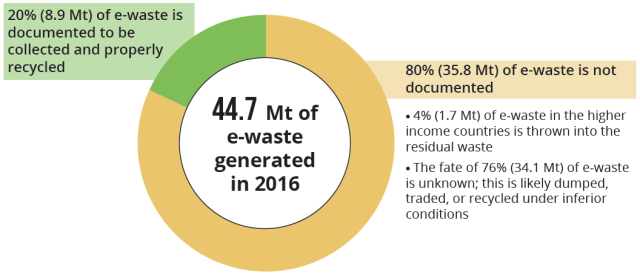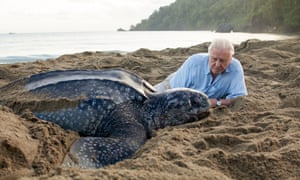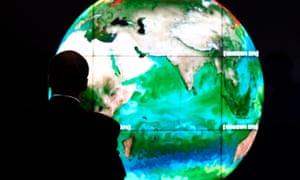‘Sin taxes’ to reverse the rapid global growth in meat eating are likely in five to 10 years, according to a report for investors managing over $4tn.
“25-year coral survey: Caribbean environmentally stressed”

The Caribbean’s coral is environmentally stressed, according to the conclusions of a recently-completed 25-year survey.
“‘A different dimension of loss’: inside the great insect die-off”

Scientists have identified 2 million species of living things. No one knows how many more are out there, and tens of thousands may be vanishing before we have even had a chance to encounter them.
“How Large Food Retailers Can Help Solve the Food Waste Crisis”

If you find yourself having to purge your refrigerator’s crisper bin every few weeks, imagine what goes on at a grocery store. The Institution of Mechanical Engineers estimates that annually between a third and a half of all food produced is wasted worldwide. According to the Guardian, approximately 45% of all fruits and vegetables, 35% of fish and seafood, 30% of cereals, and 20% of meat and dairy products are wasted by suppliers, retailers, and consumers every year.
“Just 20 percent of e-waste is being recycled”

Opting to handle your bills online keeps a lot of paper out of the bin, but the devices you use to go online eventually die anyway. If this “e-waste” ends up in a landfill, the energy and materials that went into manufacturing and delivering those devices are lost. And besides being unsustainable, disposal can expose people to hazardous metals and compounds.
“Quarter of Christmas jumpers were worn once and discarded last year”

One in four Christmas jumpers bought last year was thrown away or is unlikely to be worn again, according to new research which reveals that most novelty sweaters will only ever be worn once.
“Antarctic Modeling Pushes Up Sea-Level Rise Projections”

Global average sea level is expected to rise by one foot between 2000 and 2050 and by several more feet by the end of the century under a high-pollution scenario because of the effects of climate change, according to the projections in the new peer-reviewed study. It shows 21st century sea-level rise could be kept to less than two feet if greenhouse gas emissions are aggressively and immediately reduced, reflecting a larger gap in sea-level consequences between high and low emissions scenarios than previous research has indicated.
“Coal Is Fueling Bitcoin’s Meteoric Rise”

The cryptocurrency has wowed markets this year with breakneck gains as investors flocked to an asset that exists only in cyberspace. But the laborious creation of each digital bitcoin by private computer networks has real-world consequences in the form of massive energy use — including from fuels that cause the most pollution.
“Oceans under greatest threat in history, warns Sir David Attenborough”

The world’s oceans are under the greatest threat in history, according to Sir David Attenborough. The seas are a vital part of the global ecosystem, leaving the future of all life on Earth dependent on humanity’s actions, he says.
“World Bank to end financial support for oil and gas exploration”

The World Bank will end its financial support for oil and gas exploration within the next two years in response to the growing threat posed by climate change.

Recent Comments